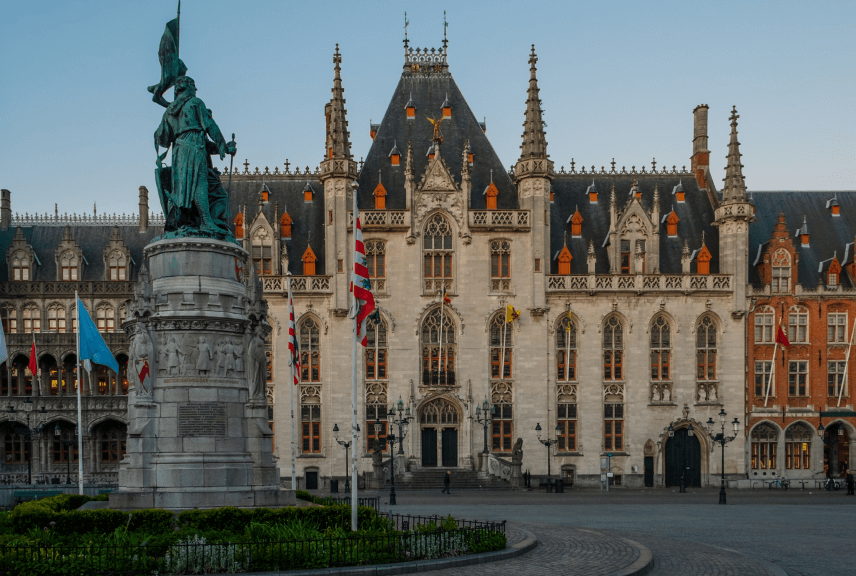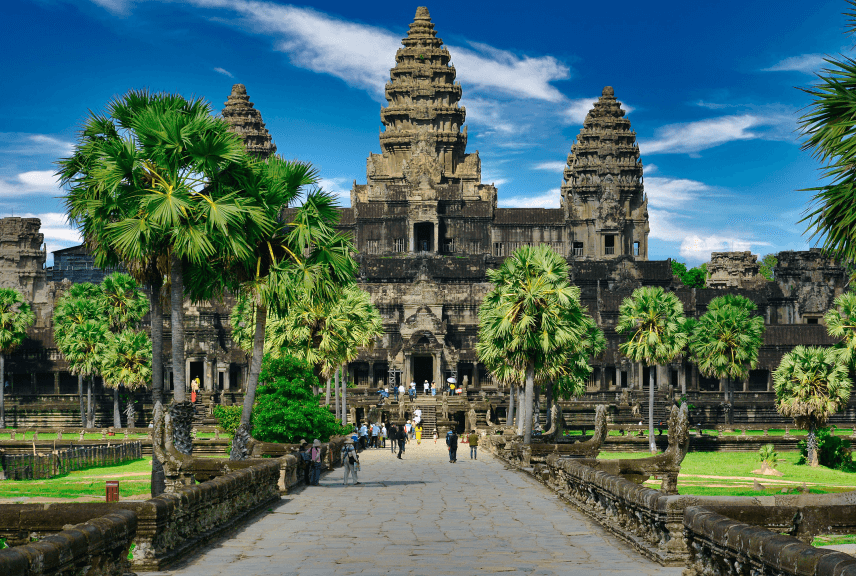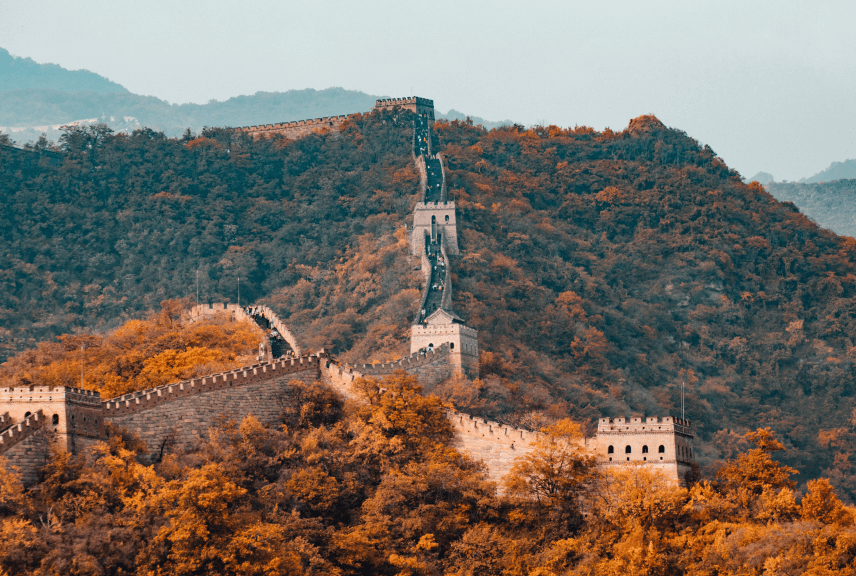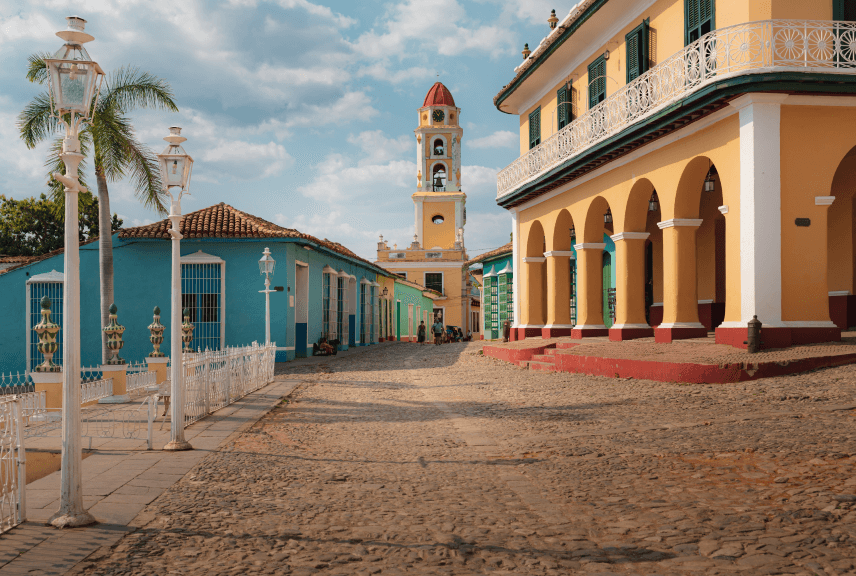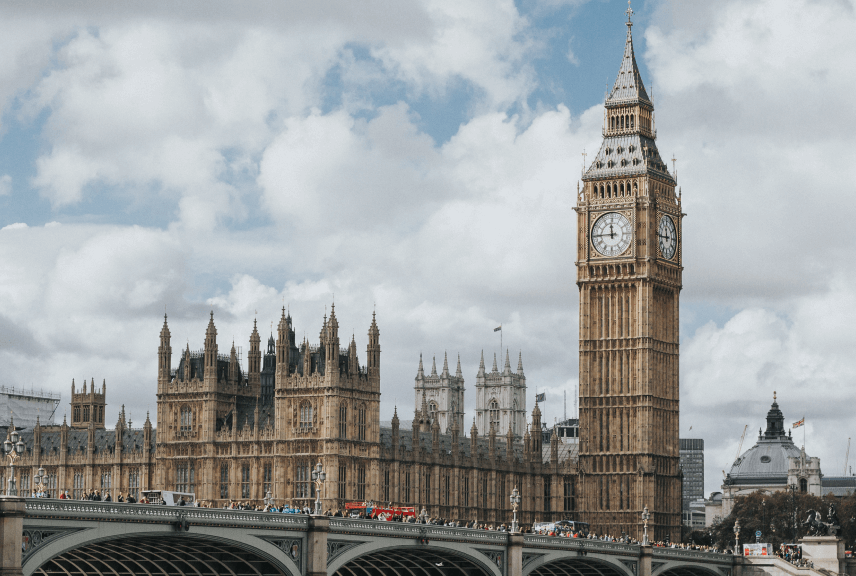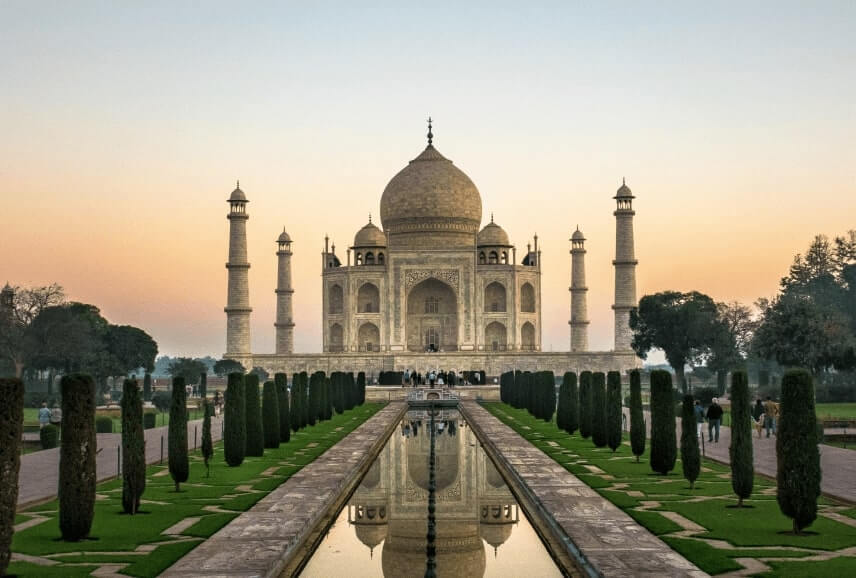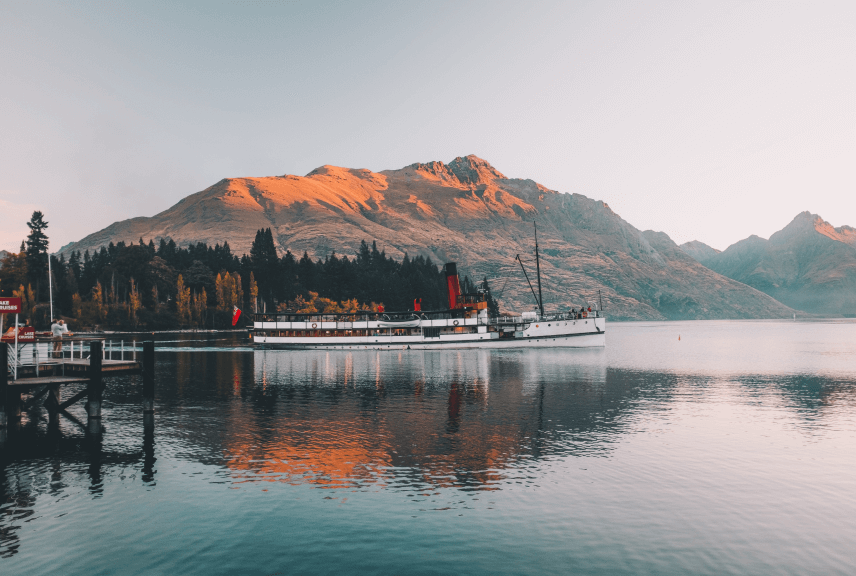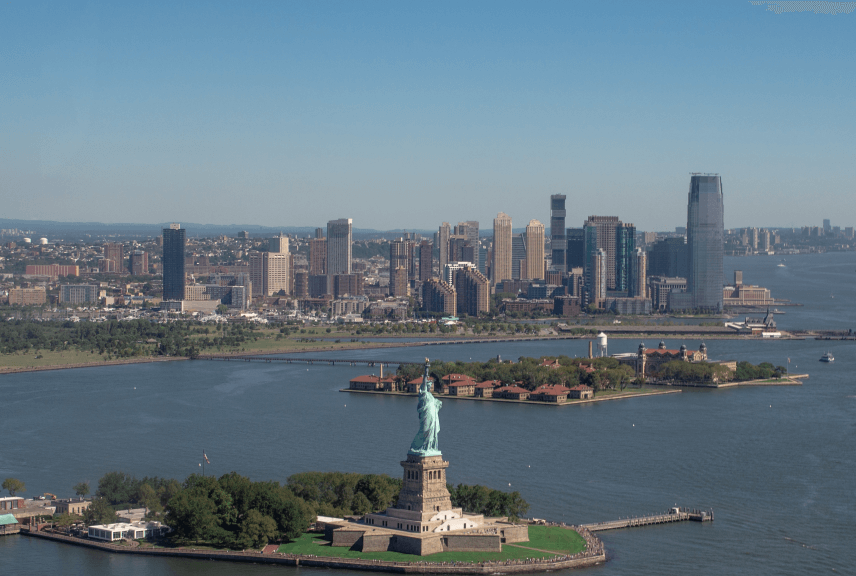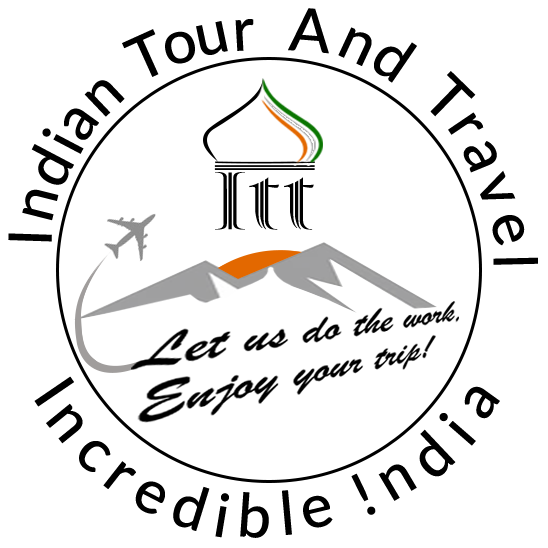What to Bring with you during your travel time
Here is a list of articles that I have found useful to bring to India. This list was created with the help of Brahma Muhurta dasa (ACBSP) an India veteran, and has been refined over the last five years or so and has been useful to many devotees, so they tell me anyway.
I used to be a Boy Scout, and their motto is “Be Prepared”. Some say I am over-prepared. I have tried incorporate only the most practical and useful items on this list. Items which are optional are on the optional list. Times are a-changing in India. It is possible to buy things there now that you couldn’t buy five years ago, especially in Mathura, Vrindaban, and the touristy areas of New Delhi. You can come to India and do OK without ANY of this stuff (except maybe the mosquito repellent), but I’m assuming that you want to come prepared and not spend your time searching high and low for things you could have bought at K-Mart.
I’ve tried to make this shopping business less laborious. If you click on the pictures below, (usually) you will come to the web sites of one of the places that sell these items online and ship them directly to your door in the USA, mainly CVS Pharmacy, EMS Sports, WalMart and K-Mart.
Here’s the whole list with hyperlinks to the particular item.
Indian Tour and Travel
Teva or Reef sandals
Dhotis + Kurtas (Saris if applicable)
Anti-Malaria Medicine
Vitamins – Multivitaminor C and B12
Camping Store
A daypack or shoulder bag
Sleeping Bag
Something for soothing Mosquito Bites
Self inflating mattress
Small Pillow
Permethrin Mosquito Net Dip
Waist Pack
Camping Flashlight (Torch)
Duffel Bag
Hardware Store
Heavy Duty Lock
Cable Chain
Plastic Coated Steel Laundry Line
Rough Guide Hindi (&Urdu) phrasebook
Inexpensive wristwatch
Recommended Reading
Indian Tour and Travel
Rough Guide Hindi (&Urdu) phrasebook
Spiritual Guides – Holy Places and Temples of India
Optional
Anti-Malaria Medicine
Vitamins – Multivitaminor C and B12
Ricola cough drops
Zip-Lock bags
Sunscreen lotion
Anti-Fungal Cream
Things to Buy in India
Bottled water
Mosquito Net
Washing powder
Metal dinner plate and cup (Thali and Lota)
Translation Headphones
Cheap slip-on sandals
Plastic Bucket
Wool blanket or heavy chaddar
Laundry line(if not brought)
Gamshas
plastic lota
Light Cotton chaddar
Film
Spiritual Guides – Holy Places and Temples of India
Hooded sweatshirt
Underwear and socks
Optional
Water Filter
Camping tent
Mosquito Net
Clothing
Teva or Reef sandals
Dhotis + Kurtas (Saris if applicable)
Inexpensive wristwatch
Hooded sweatshirt
Underwear and socks
Recommended Reading
Optional
Lonely Planet – India
Drug Store (Chemist)
Asperin or Paracetemol
Antiseptic cream (Neosporin)
Laundry clips(pegs)
Toothbrush
Razor/Shaving Cream
Nail file
Small folding umbrella
Film
Alcohol wipes
Toothpaste
Toothbrush
Fever Thermometer
Visine eye drops
Mosquito repellent
Small scrub brush
Hair brush or comb
Tweezers
Alkaline batteries
Travel Alarm Clock
Petroleum Jelly
Kaopectate or Pepto-bismol tablets
Band Aids (plasters)
Sunglasses
Pumice stone
Shampoo or Body Wash
Fingernail clippers
Earplugs
Camera batteries
Laundry bag
Washcloth
Prescription Eyeglasses
If applicable: Feminine Hygiene Supplies
If applicable: Prescription Medication
Stationery items
Notebook and Pen
A small notebook, blank book, or diary will be useful for taking notes. Sturdily bound notebooks with good quality paper are hard to find in India.
Laundry Marker Pen
Parikrama is like a trip to summer camp. Having you name on your bags will make it easier to travel with them. It’s helpful if all of your cloth has your initials on it somewhere since many gamshas and all white dhotis look alike. Mark dhotis in a corner and turn kurtas inside-out and mark the pockets on the inside. They dry faster if you hang them up this way as well.
Photocopies
Once you’ve gotten your India Visa, you should make three copies each of the photo page (the inside cover which has the passport number and photo) and the page that has the India Visa. Leave one set at home. Keep one set with your luggage separate from your passport and plane tickets. The third set is for the Parikrama registration formalities.
NOTE: If your visa is valid for more than six months you are supposed to register with the Foreigner Registration Office, which is located in Mathura, though you can probably get by without doing this if you are only visiting India for a month.
Recommended Reading
Sri Braja Mandala Parikrama Published in 2001 (ISBN 81-86737-20-0)This is the long-awaited English translation of Srila Gurudeva’s Hindi guide to the holy places of Vrindaban Dham.
Rough Guide Hindi (&Urdu) phrasebook (ISBN: 185828922X)
Full of very practical and useful dialogue examples and tips. A little Hindi goes a long way and the Indian people always appreciate the effort.
Spiritual Guides – Holy Places and Temples of India by Jada Bharata Dasa
An excellent guidebook. Many practical and useful tips and information about many temples and places in India not found in other travel guides. More information and names of additional places to buy the book are available on their
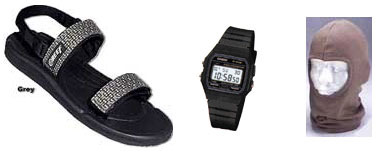
Optional
Lonely Planet – India (ISBN 1864502460)
Worth considering, especially if you can’t lay your hands on a copy of Spiritual Guides (above). The hotel phone numbers are more current in this guide than in Spiritual Guides.
Clothing
There are two things that Indians always check out. The first thing is your shoes, the second is your watch. Best is you don’t wear either one! But second best is to have unattractive sandals, well broken in, and a cheap watch. Some devotees keep their watch in their bag or waist pack, not on their wrist.
Teva or Reef sandals
Plain black don’t seem to get stolen.
I like the Reefs, because they are cheaper than the Tevas, plus the back strap is Velcro and comes off completely. This makes it very convenient to step in and out of your sandals to pay obeisances and enter temples without touching your shoes. (You have to wash your hands if you do this).
Reefs are hard to find in stores (or out of season) and these seem to have been discontinued altogether. A pity. You can find a store that sells Reef products at Reef’s Web Site . Ask for the “Reef Convertible 692”. Even though they are discontinued, they may still have some.
With any footwear, it is wise to separate them when you take them off which makes it hard for anyone to mistakenly take them or steal them.
Inexpensive Wristwatch.
The cheaper the better. This is the tried and true Casio F-91W, which is pretty much the bottom of the Casio line.
b> Hooded sweatshirt
Useful especially if you are planning to sleep in a tent.
Balaclava
Especially if you are planning to sleep in a tent. It’s the most comfortable way I’ve found to keep your neck warm and doubles as a hat if your roll it up.
Dhotis and Kurta (or Saris)
I would suggest bringing three sets. Obviously you can just was easily buy these in India (No, really?) but the parikrama is a bit hard on your clothing and you might want to figure on sacrificing your existing cloth and buy new stuff on your way out of India. This way you’re not all mental about wrecking your cloth by paying obeisances in the dust.

Underwear and Socks
Three or four sets of underwear. Socks are optional because they get dirty just about instantly and are hard to wash by hand (even with the laundry brush), so you might only want to wear them while sleeping especially if you are planning to sleep in a tent. In the Gaudiya Math, kaupins are part of the sanyassa dress only, so bring the BVDs.
Drugstore (Chemist) items
A few of these items seem to be particular to the USA.
Fever Thermometer
Try it out when you are healthy so you know how it works. Electronic ones that are easy to read and don’t contain mercury have come way down in price.
Kaopectate or Pepto-bismol tablets
Good for soothing the travel weary tummy or for a moderate case of the runs especially if taken before meals.
Asperin or Paracetemol
Visine eye drops
Are useful for refreshing your eyes if they get sore from travelling or the sun.
Band Aids (plasters)
Indian bandaids (plasters) are straight from the 1940’s and not “ouchless” when you take them off.
Antiseptic cream (Neosporin)
The first line of defence against infection from cuts that in the west would never become infected. Well stocked chemists (pharmacies) in India have something similar.
Mosquito repellent
Repellents containing DEET such as Cutters or Deep Woods OFF in a spray can are the most useful.
I would not recommend the 100% DEET that you can find in camping stores.
DEET is a heavy chemical, and should not be applied directly to the skin if possible.
I suggest bringing a spray can for spaying on clothing such as a chaddar and socks and (if you can find it) a bottle of non-deet repellent
There are a whole range of repellent products discussed here.
Some devotees swear by Tea Tree oil and other non-DEET repellents. I can’t say for sure it is as good or not. I say “stick with what works”.
One brand which contains DEET that I like and have used for years is called “Sawyer’s Controlled Release Lotion”. It has a special formula that doesn’t soak into your skin (much) and is highly effective when applied to bare skin on the neck and hands.
I’ve always found it in good outdoor shops.

Sunglasses
Like ordinary eye glasses, they are prone to theft by monkeys, so a cheap pair might be advisable.
Laundry clips (pegs)
The wooden ones are better than the plastic ones. I usually have about twenty, because a few will invariably go missing.
Small scrub brush (nail brush)
For cleaning feet and hand-washing clothes.
Pumice stone
Good for buffing off calluses, especially on the heel, otherwise after a while they crack, which is painful.
Petroleum Jelly
Applied to feet (after washing, especially before bedtime) it helps prevent cracks.
Toothbrush
Toothpaste
Bring your own if you can’t bear the thought of using Crest or Colgate.
Shampoo or Body Wash
Bring what you like. Some western brands are available (for western prices). Most of the water in Vrindaban dham is “Hard” though, so I generally use shampoo for everything.
Razor/Shaving Cream
If you want to skip shaving altogether, fine. If the grunge look isn’t you, bring your razor and shaving cream, though both are available. You can visit a barber before you leave and they can take off a month’s growth easier than you can (always insist on a new blade) and give you a haircut as well for about Rs13 (25 cents).
Hair brush or comb
Fingernail clippers (don’t carry on the airplane)
Nail file (don’t carry on the airplane)
Tweezers (don’t carry on the airplane)
You don’t really need them if you have one in the Swiss army knife.
Earplugs
India is a noisy place. Also, if you are sharing a room with several devotees, chances are that you will be paired with a snorer. Actually, anyone who sleeps on their back must snore, it’s an anatomical certainty.
Small folding umbrella
Keeps off the sun as well as the rain.
Alkaline batteries
Can be found in cities and tourist areas.
Camera batteries
Flash photography really runs them down quickly. You won’t find them easily in India.
Film
Good film is also available in India. Sometimes shops give a discount for processing film bought from them. A 24 exposure roll of Kodak (made in USA) ASA 100 only costs about $2.40 in India.
Travel Alarm Clock
Again, the cheaper, the better. Digital is better than analogue (tick tick tick) since the clock is going to be about a foot from your head most of the time.
Laundry bag
An extra pillowcase works fine for this.
Box of wash-and-dry or alcohol wipes
Useful for hand washing hands and under the fingernails before eating or after using the toilet. VERY handy for the parikrama. When prasadam is served on the parikrama, there is usually nowhere to wash your hands before taking prasadam. Also handy for cuts and scrapes.
Washcloth
It’s quite important to keep your skin clean in India, and washing diligently with soap and a washcloth may help avoid boils and help them from spreading if you are unlucky enough to get one. See the Health Page for more about this.
Prescription Eyeglasses
It would be a good idea to have a spare pair as well as monkeys like to steal them and in a parikrama situation, it’s pretty easy to break them. You can get them replaced pretty cheaply in India, so it might be a good idea to bring a copy of your prescription.
Feminine Hygiene Supplies
According to several leading India guides, ladies should bring an adequate supply from home to avoid disappointment with Indian products.
Prescription Medication
Though most medicines are available in India (usually far less costly than in the west) if you are taking any prescription medicine, be sure to bring an adequate supply for your stay in India.
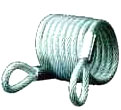
Optional –
Anti-Malaria Medicine See the Heath Page for more about this.
Vitamins – Multivitamin or C and B12
Kartik is the change of seasons and the “Parikrama Headcold” seems to be an annual event.
Ricola cough drops
In case the vitamins fail you. Vicks and other cough drops are easy to find in India.
Sunscreen Lotion
Might be more useful for kids than adults. I prefer a chaddar.
Zip-Lock Bags
Useful for bringing home mahaprasad from different places in the dham, also for protecting papers and for carrying laundry powder.
Anti-Fungal Cream
Useful for clearing up fungal infections especially on the feet. This is mainly a problem in hot weather (Gour Mandal Parikrama).
At a Hardware Store
Heavy Duty Combination locks Useful for dharamsalas. No key to carry around and lose. Four settable digits.The recombo feature is handy so that you can change combos when you change roommates.
Note: You should avoid using anyone’s birth year as the combo, because that reduces the number of possible combinations from 10,000 to about 30!

Useless

Good

Best
Same as 155 but more secure. You may need to call around for this one.
If you plan to make any train journeys in India, this is useful with your lock (above) for securing your luggage under the seat of the train.
Plastic-Coated Steel Laundry Line
You can get cheap plastic line in India, but the advantage of plastic-coated steel laundry line is that it doesn’t stretch when you load it up with wet dhotis and drag your laundry all over the ground. Sells for £1 at the Pound Land stores in England.
At a Camping Store
Daypack or Shoulder bag
A black or a dark color is best. Alternatively, in Vrindaban, the shops in Loi Bazaar sell good cloth shoulder bags (sastra bags) which are good for carrying your note book, water bottles, etc. You should never carry your shoes in such a bag however because they are considered dirty.

Self Inflating Mattress
Staying at a dharamsala means sleeping on concrete. Thermarest mattresses have been around for decades and are simply the best and are guaranteed for life. In practice they last for years and years of daily use with minimal care.
For the economy-minded, the closed cell foam pads are available in any K-Mart or sporting goods store for $6-$12 and are OK if you don’t mind how thin they are. For the real renunciate there is the genuine Indian woven plastic sleeping pad which can be bought in the market for about Rs30.
Waist Pack or Money Belt
The smaller and plainer the better. Good for carrying your rupees, swiss army knife, bandaids, alcohol wipes, etc. Hopefully you will have left all of your valuables like passport, plane tickets, and most of your cash with the parikrama organisers for safe keeping at the beginning of the parikrama. Carrying those things around will just leave you in needless anxiety, and every year devotees who don’t heed this advice end up trooping off to Delhi to try to get them replaced.
Sleeping Bag
I bought the LaFuma “One Kilo” for about $85 in a camping store in Berkeley, California.It’s a very compact and light bag and good for cool to cold weather typical in Kartik. The filling is Thinsulate® which is something you might look for in another bag. This is an item you might pick up used on eBay or in a classified advert and it’s machine washable. Cheap bags that you can find for $25 in discount stores are likely to be much heavier and bulkier, but if you want to save some money those might be worth considering. Alternatively, depending on the weather and your tolerance to cold, you MIGHT get by with a wool chaddar. There are also inexpensive quilts available at shops in Mathura and Vrindaban. This is what the Indians will be using. They are heavy and bulky, but if you fold it, wrap it in a tarp or an old dhoti and tie it up with rope or your laundry line, it will be treated as luggage for the month you’ll be using it. Unless you want a big heavy souvenir, just donate it to someone on the way out of India. Besides being the cheapest option, you don’t have to pack it, get it to and from the dham, and check it on the airplane.
Small pillow
I use a washable throw pillow that I bought for $1. Some devotees use the inflatable type sold at camping stores. I haven’t seen any small pillows in India, only huge hard foam slabs
Something For Soothing Mosquito Bites
I used to recommend “After Bite” (found in camping shops) which takes the sting and itch out of bug bites. It worked just fine without the Mink Oil they now put in it! Here’s another product that seems to do the same thing. Benadryl and Caladryl cream are sometimes effective as well.
Available in many camping stores. Sorry, this picture is not clickable.
Eveready Camping Flashlight (Torch)
Converts from a flashlight (Torch) to a lantern. When the batteries are fresh, this casts a very bright beam, however it goes through batteries quickly (takes four AA’s) so bring extras. Good for spotting marauding mosquitoes inside your net/tent and very handy for the toilet and shower which seem to be popular targets for light bulb thieves. Available in many discount, hardware, and camping stores.
Sorry, this picture is not clickable.
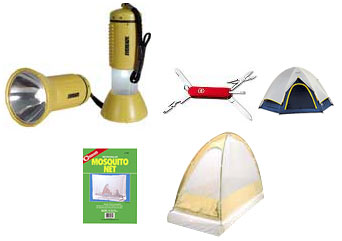
Genuine Swiss Army Knife
There’s nothing worse than a dull knife. This one has most of the extra features you will need including tweezers and is similar to the one I used for years. My new knife has computer tools built into it but costs a lot more than this one. Be sure to pack it with your checked-in luggage.
Optional –
Water Filter
Actually, I never used mine, because it’s just one more thing to carry around, and our parikrama is always near enough to a source of bottled water or at least green coconuts (which are always safe, taste OK, and are cheap) that this is not a serious problem. Since these filters start at $50, in my humble opinion, it’s not worth thinking about it. Also, with any filter system you cannot be absolutely certain that the water that comes out of it is free from all bacteria and viruses. One rule: Don’t believe what anybody tells you about the local water being just fine. Don’t even brush your teeth with it! Spend fifty cents a day for water and have a nice parikrama.
Camping Tent
There are indoor accommodations available everywhere during the parikrama, though every year some devotees prefer to have a little more space for themselves and bring a tent. The minus points are that tents are less secure and hot during the day and can be cold at night and should not be used outdoors in Mathura or Vrindaban because to the monkeys like to jump on them and break them. There is also less insulation from noise and dust. Still interested? It might be worth checking out eBay or classified adverts for used tents. Good tents from camping stores tend to start at $150, but they are not necessarily better than a cheap K-Mart tent. Wal-Mart sells a reasonable dome tent for about $30 similar to this $50 one from K-Mart. In the UK try here.
Mosquito Net
There are lots of other bed-nets available here though you can buy ones that are just as good in India for less money. If you are joining the parikrama in a small town like Varsana, it would be a good idea to bring one with you. If you are on a tight budget, you can buy perfectly good ones in India in most places for Rs 120 or so (about $3). They come in single and double sizes. If you want to come prepared, you can buy them at K-Mart for about $8. You will need some string to set it up, so bring some with you. You will want to take some precautions against being bitten through the net. I usually place some dhotis around the inside which gives a bit more room and solves the problem.
For years now devotees have been buying freestanding mosquito nets. They are a bit pricey, starting at $50 and ranging up to $110. The primary advantage is that there is no “stringing up” the net, which is usually a challenge as there need to be places to tie the strings. There is also the problem of ceiling fans disturbing the net and of devotees walking into the strings and hanging their laundry on them. There are two basic styles of freestanding mosquito nets, one has a floor and a zipper and the other doesn’t.
This model is called the Bed-tent, and is bed-sized, but can be used on the floor or even outdoors. It has shock corded poles and is easy to setup and take down. It only comes in one mesh type, fine mesh, and a floor which keeps out everything including bed-bugs (sometimes a problem in hotels and in dharmsalas with beds, but not on the parikrama). It comes in a one or two person size. It also has mosquito-proof fabric at the base which prevents you from getting bitten through the net (especially on the feet, knees, elbows, and especially the knuckles. Ouch, that hurts! Time for the Sting-eze!) It has a little zippered expansion panel at the foot end which accommodates taller devotees. It might be a bit warmer than the other models, but it has proven to be the most popular with devotees and is recommended.
This model is the lightest and least expensive, but is a bit more challenging to setup as you have to fit the fibreglass poles together without them falling apart. It is also bed-sized, and comes in a one or two person size. Unlike the Bed-Tent it comes in a choice of regular and fine mesh. It does not feel as confining as the bed-tent and it works fine against mosquitoes so long as you are not too tall. It won’t stop bed-bugs, and the lack of mosquito proof material at the bottom means that you still have to take some precautions against being bitten through the net.
These are a bit longer than bed-sized (9 inches longer) which is a problem if you actually want to use it on a bed (in a hotel in Delhi or somewhere) but advantageous if you’re taller than about 5 feet 10 inches. The width is about the same as the one above which means that you still have to take some precautions against being bitten through the net. It comes in a choice of regular and fine mesh. They have shock corded poles, which add a bit to the weight, 22 ounces instead of 16, but are well worth it. It used to come in a two-person model, but that one is discontinued. There is a different two-person model on offer here which might be a good choice.
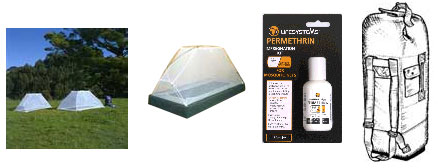
Permethrin Mosquito Net Dip
Permethrin Mosquito Repellent dip repels mosquitoes that would like to bite you through your net or tent. I tried this in Vraja Mandala Parikrama last year and it worked really well. One bottle has enough permethrin to treat several nets and each treatment lasts for six months or until you wash the net. For the bed-tent there is a permethrin spray which does the same thing.
Duffel Bag
The most practical solution for carrying all of your necessary articles to and from India. Soft bags are preferable to hard suitcases especially for the Braja Mandala parikrama, because the bags are all handed up to the top of the bus, covered, and tied down (supposedly). In the process of unloading they are (usually) handed back down to the ground. Heavy hard cases are positively scorned and take up much more of the limited roof-top luggage space, and because they are ill-suited for this awkward procedure they are more likely to come plummeting down to the ground, possibly on top of someone. For the same reason, two small bags are preferable to one large bag. Besides K-Mart, one place that seems to have decent luggage-quality (i.e. more expensive) sport duffel bags is eBags. The advantage of a sport duffel bag is that getting things out of it is easier than a top-loading bag (pictured). The bag I use is a genuine US Army issue duffel bag with straps like the one here. The advantage of the straps is that you can wear it like a backpack instead of carrying it though it had a handle if you want to do that. It also does not look flashy and has the possibility of locking using a large luggage lock or small padlock at the top. The ones I found online are already “broken in” (by the Korean Army no less) and only cost $7.
Things to get when in India
At the chemist (that’s what the pharmacy is called)
Anti-Malaria medicine
If you want to do this. See the Travel Health page.
At the cloth shop
Wool blanket or Heavy Chaddar
Good for cold nights and mornings and extra comfort when sitting.
Light Cotton Chaddar
For keeping the sun off. When sprayed with mosquito repellent every other day or so, it keeps them off as well. They come in pairs, which should be sufficient.
Gamshas
You will need two or three gamshas for the bathroom. Terry Cloth Bath towels are useless, so leave them at home. A gamsha is a thin, plaid (usually) cloth that is generally knee length. It is used for bathing and in India especially, one should always bathe clothed. Ladies must also cover the upper body at all times as well especially if bathing outdoors or in a river. Ladies should take the advice of senior ladies on this point. Gamshas can go missing, so it’s best to have an extra. The gamsha used to dry is used to wash next time. In Vrindavana, the thin gamsha favored by devotees is called a “Bengali Gamsha”. The other type is more bulky and takes longer to dry. In Navadwip dham, there is a yet another type of gamsha which is ankle length and has a larger plaid pattern. These are often sold on the street, and are mainly worn by Muslims, so are best avoided. Proper gamshas an be found in cloth shops. NOTE: Gamshas are not “color-fast”. A new gamsha will “bleed” color for a long time when used or washed, so be careful not to wash it with your other cloth.
At the market
Translation Headphones
For live English Translation of the Hindi portions of the lectures. Available in the market in Vrindaban for Rs 500.
Cheap slip-on sandals
For the bathroom. Sometimes called flip-flops.
Mosquito Net
If you don’t have one already. In Hindi it’s called a “Macchar Dhani”.
Plastic Bucket and Lota
For washing clothes and for bathing. A plastic lota looks like a measuring cup.
Washing powder
Save an empty film canister and put a little laundry powder in it for plate washing after meals.
Metal Dinner Plate and Cup (Thali and Lota)
A thali is a round plate with about one inch tall sides. This lota is a steel drinking cup. Both are inexpensive, easy to find, and easy to clean. A spoon is optional.
Note: In India, practically everyone eats with their fingers, and using the right hand ONLY. (Remember those Alcohol wipes? Be sure to clean under your finger nails). Normally, the left hand is not used AT ALL at the time of eating, so it stays clean for collecting your belongings, opening doors, turning on faucets, etc. until the right hand is thoroughly washed after eating. For those who lack dexterity or cultural flexibility, use of a spoon is permitted but the right hand still must be washed after eating and is considered unclean until then. Time was that eating with a spoon was frowned upon, but they seem to have gotten over it. The primary advantage in eating with your fingers is that it is impossible to burn your mouth (you burn your fingers instead).
Laundry Line
If you didn’t bring one, plastic rope is sold by the meter. Very inexpensive.
Film
Be sure to check the expiry date. Malhotra Studios, located between Holi Gate and the Mathura Math is the best place in Vrindaban Dham for print film developing. They give you a discount on developing if you buy the film from them.
Bottled Water
All real bottled water has a tamper-evident neck seal that breaks when you open it. Most shops are reputable, some vendors on the trains are not. Check the seal before you pay. If the seal is broken, hand it back and ask for another bottle. Larger bottles are now available, though sometimes with a returnable deposit. In Vrindaban dham, you can refill and reuse your own one and two liter bottles from a returnable five liter bottle and save a lot of plastic waste in the dham.
I’d welcome some feedback on this section (Please! The address is feedback at purebhakti.com). Please check back before you leave to see what further information has been added with the help of others.
